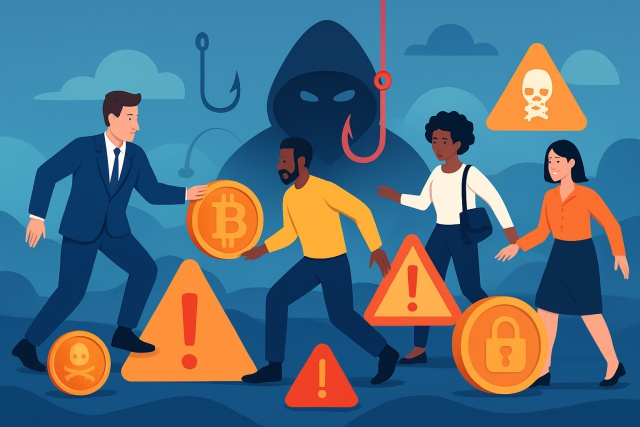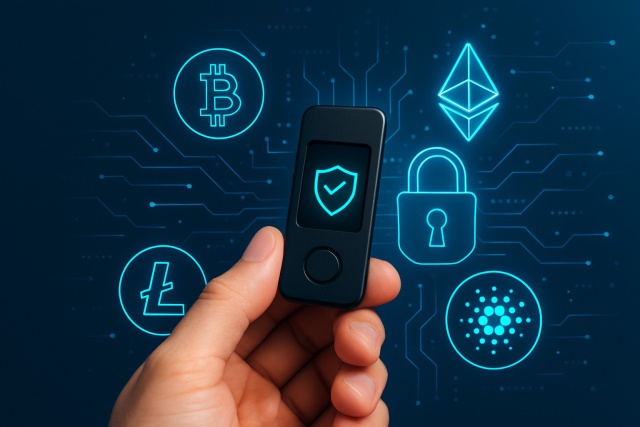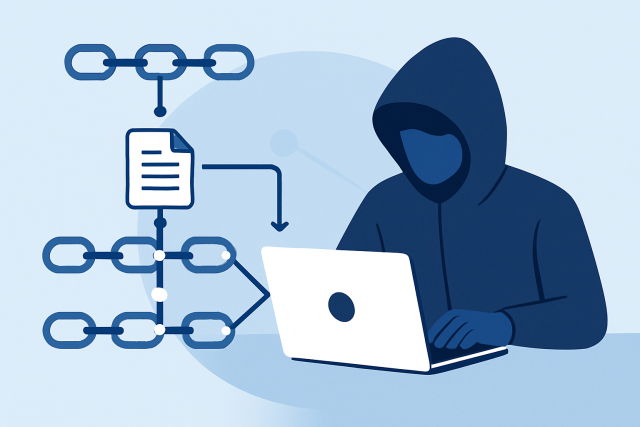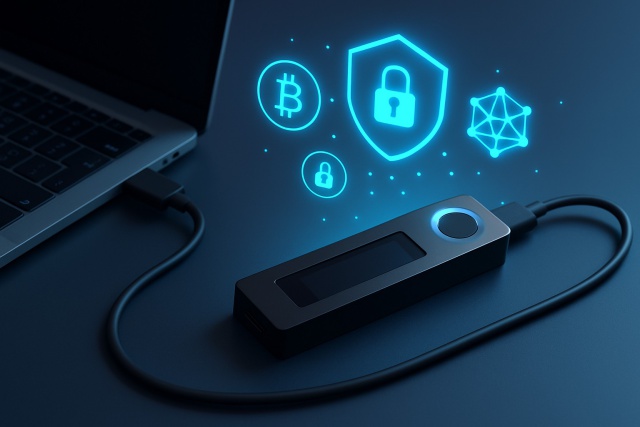How Private Key Protects Your Wallet and Assets?

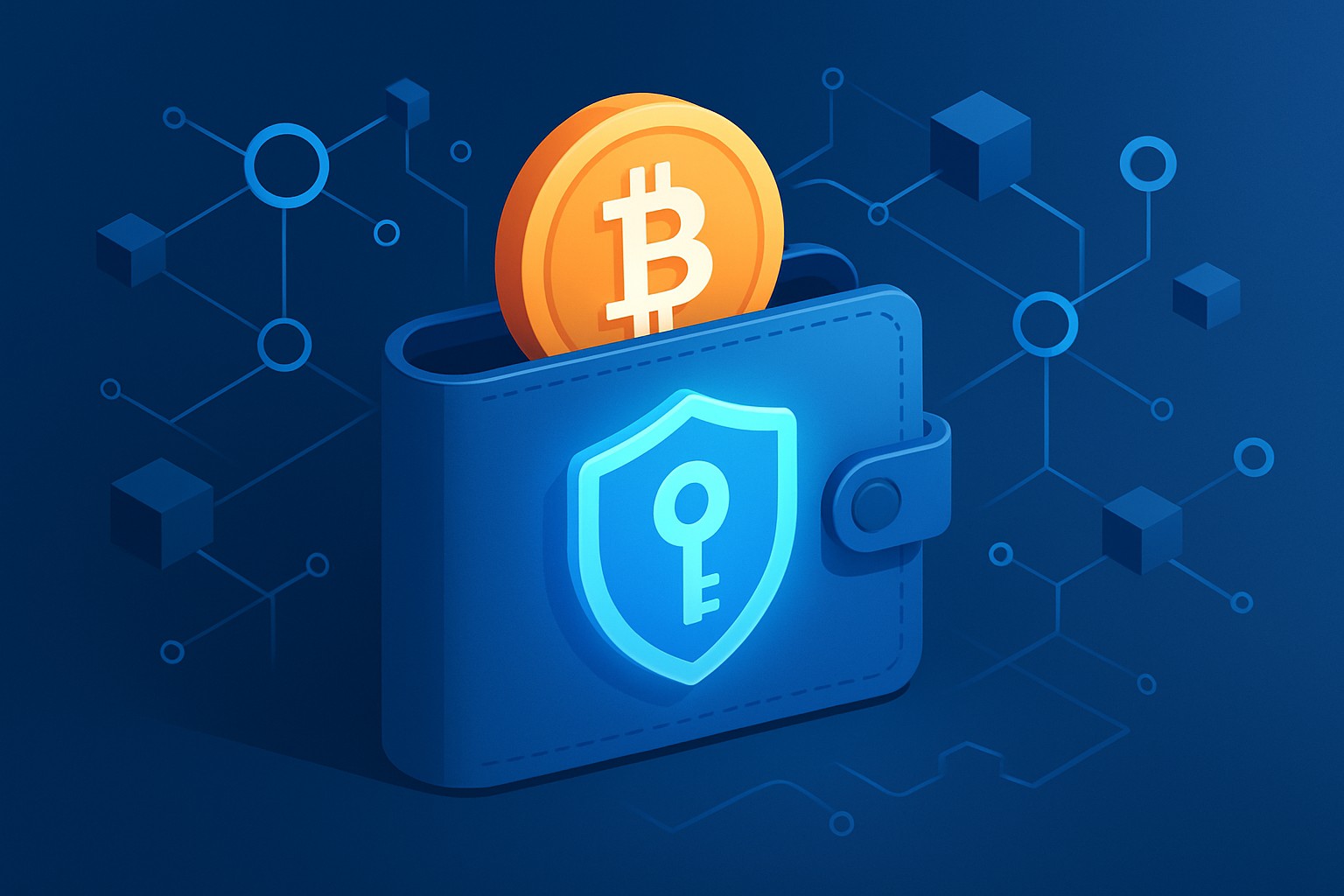
A private key is a secret string of letters and numbers that unlocks access to your cryptocurrency wallet. Think of it as your top-notch security guard, ensuring that only you hold the reins to your digital assets.
Understanding the Private Key and How It Works A Little Deeper Dive
A private key is basically a cryptographically generated number that sits at the very heart of your digital wallet's security. It’s the secret sauce that creates a matching public key and wallet address, but you’ve got to keep it under wraps to maintain full control over your assets.
- A private key is like your secret handshake and a code you use to sign transactions to prove you own a wallet.
- Through clever math magic it spits out a matching public key that others use to send funds your way.
- These private keys come from intricate cryptographic algorithms designed to ensure each one is as random and unique as a snowflake.
- You’ll often see them as long strings of hexadecimal gibberish or as more user-friendly seed phrases that are easier to handle.
- If you lose or accidentally share your private key you’re basically locking yourself out of your cryptocurrency treasure chest for good.
How Your Private Key Silently Guards Your Wallet and Assets
Your private key acts as the unique credential that unlocks access to your wallet and lets you confidently initiate and approve transactions. When you sign transactions with your private key it quietly proves you are the rightful owner without ever revealing the key itself.
- Holding your private key means you have full and exclusive control over your wallet’s funds, like having the keys to your own digital kingdom.
- Your private key digitally signs transactions and acts as your personal autograph proving they really came from you.
- Others can check these digital signatures using your public key without seeing your private key, keeping your secret safe.
- If someone else gets your private key, they could make unauthorized transactions and wipe out everything you’ve got, so guard it like your crown jewels.
- This process runs on blockchain technology which provides a rock-solid tamper-proof way to confirm ownership and track every transaction.

Step-by-Step Guide to Safely Tackle and Guard Your Private Key Like a Pro
Create your private key using a trusted and secure wallet application or hardware wallet. You can rest easy knowing it’s truly random and well protected.
Keep your private key offline by opting for cold storage options like paper wallets or hardware devices. This is a smart move to keep the internet’s prying eyes at bay.
Choose tried-and-true hardware wallets such as Ledger or Trezor. They are designed specifically to generate, store and sign transactions with your private keys securely so you’re not flying blind.
Never share your private key online, by email or through messaging platforms. Avoid phishing scams and hackers like the plague.
Back up your private key or seed phrase securely in multiple physical locations. If you can find storage that’s fireproof and waterproof that’s even better. It’s always better to be safe than sorry.
Turn on multi-factor authentication for your wallet and any related accounts to bring more depth of security. Think of it as a digital bouncer.
Regularly revisit and fine-tune your security habits by staying updated on the latest threats and wallet software updates. Remember security is a moving target.
Following these practices helps keep your private key safe from wandering off or ending up where it should not. Relying on offline storage and hardware wallets and staying on top of security updates provides a much sturdier shield against hacks or slip-ups.
Frequent Mistakes and Risks Tied to Private Keys You’ll Want to Avoid
- Stashing private keys online in cloud services or leaving them in unencrypted digital notes, which basically hands hackers an open invitation.
- Going with weak or recycled passwords to lock down wallets, making it a cakewalk for phishing scams or brute force attacks to break in.
- Getting duped by phishing schemes where attackers pretend to be wallet providers, tricking individuals into handing over their private keys like it’s no big deal.
- Skipping the vital step of backing up private keys or seed phrases, which can mean saying goodbye forever if you lose access to your wallet.
- Putting all your trust in exchanges to hold your assets without having control of the private keys yourself, leaving you vulnerable to headaches from exchange outages or security slip-ups.
These slip-ups often lead to the permanent loss of funds and wallets going belly up. Take it from those who’ve been burned—users have watched millions vanish into thin air thanks to phishing scams or exchange hacks, especially when they didn’t hold the reins to their private keys.
Steps to Take When You Suspect Your Private Key Might Have Been Exposed
Keep a sharp eye out for any signs that something’s off such as unexpected transactions or alerts about wallet access that surprise you.
Move your assets to a fresh wallet with a securely generated private key as soon as possible. Think of it as locking the front door before the cat slips out. This helps prevent further losses.
If your platform allows, revoke or reset any access controls linked to the old private key. It’s similar to changing the locks after losing your keys.
Inform any relevant services, exchanges or contacts right away if you suspect fraudulent activity. It is better to be safe than sorry.
Strengthen your security by using multi-factor authentication and hardware wallets. These extra layers can help prevent future problems.
Acting swiftly and without hesitation once your private key has been compromised is absolutely key to keep the damage to a minimum. Moving your assets over to a fresh, secure wallet and locking down your accounts is the best way to get a grip on the situation and protect your funds from any further sneaky theft or misuse.
Frequently Asked Questions
What happens if I lose my private key?
If you misplace your private key you are pretty much locked out for good—no way to recover your wallet or funds. Unlike your usual passwords stored somewhere in the cloud, private keys aren’t stored centrally. So it’s vital to back up your key or seed phrase securely in several offline spots—think of it as your crypto lifeline.
Can someone steal my crypto if they have my public key?
No worries here — your public key is meant to be shared and only works to receive funds, not spend them. The real dealbreaker is your private key which authorizes transactions. Still, a word to the wise: don’t flash both your public and private keys around or you’re basically handing over the keys to your kingdom.
Are hardware wallets necessary for storing private keys?
Hardware wallets like Ledger or Trezor aren’t absolutely necessary but they are a smart move. They keep your private keys offline and put a solid barrier between you and the online bad guys. Especially if you’ve got a sizable stash, the extra security usually makes the cost worthwhile compared to riskier digital storage methods.
How can I tell if my private key has been compromised?
Red flags include transactions you didn’t sign off on or suddenly finding yourself locked out of your wallet. If you get even a whiff of trouble don’t dawdle—move your funds to a new wallet with a different private key immediately and shut down any old access. Keeping a close eye on your transaction history for anything fishy is also a habit worth forming.
Is a seed phrase the same as a private key?
Think of a seed phrase usually 12 to 24 words as a more user-friendly version of your private key—it’s designed to make backup and recovery simpler. Both give full access to your wallet so you should guard your seed phrase just as fiercely as your private key. No shortcuts there!
Can I change my private key if I think it’s unsafe?
You can but there’s a catch: private keys can’t be reset like passwords. You’ll need to create a new wallet with a fresh private key and transfer your funds manually. It’s a bit more hands-on but it’s the only way to keep your crypto safe if you think your current key has been compromised.


